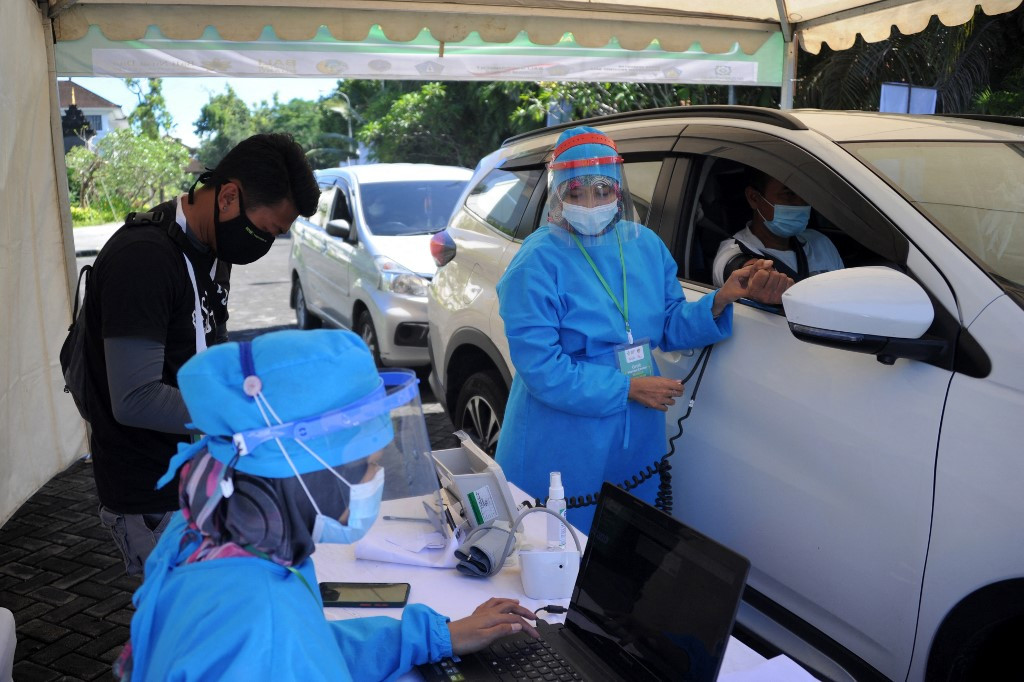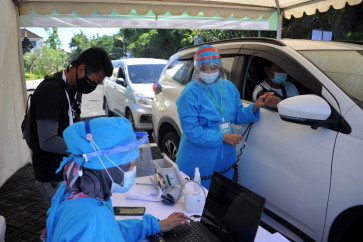Popular Reads
Top Results
Can't find what you're looking for?
View all search resultsPopular Reads
Top Results
Can't find what you're looking for?
View all search results[INSIGHT] Overcoming COVID-19 vaccine hesitancy
Aiming for vaccination coverage of 181 million Indonesian citizens will be challenging if people have little confidence in the vaccine, a phenomenon known as vaccine hesitancy.
Change text size
Gift Premium Articles
to Anyone
I
t is a significant achievement that Indonesia initiated its vaccine rollout on Jan. 13, with President Joko “Jokowi” Widodo receiving the country’s first COVID-19 jab. Jokowi sent a firm message to the people that all those who are eligible and offered the vaccine should take it.
Nevertheless, aiming for vaccination coverage of 181 million citizens will be challenging if people have little confidence in the vaccine, a phenomenon known as vaccine hesitancy. Strong demand for and acceptance of COVID-19 vaccines will be crucial but promoting acceptance and buy-in are no easy tasks.
Several studies have warned us about the prevalence of vaccine hesitancy among Indonesians. A survey by Saiful Mujani Research & Consulting (SMRC) in mid-December 2020 showed a large number of Indonesians were hesitant about obtaining a COVID-19 vaccine amid rampant concerns about safety and the efficacy of the new coronavirus vaccines.
The nationwide survey found that only 37 percent of respondents were willing to be inoculated. It is also alarming that 40 percent of respondents remained undecided about whether to get vaccine injections, while the remaining 17 percent mentioned their disapproval of the vaccination initiative.
Of course, vaccine hesitancy is not a uniquely Indonesian, but a global, phenomenon. It is noteworthy that the World Health Organization listed vaccine hesitancy among the 10 threats to global health in 2019.
There are various and complex reasons related to COVID-19 vaccine hesitancy. For example, given the unprecedented speed at which COVID-19 vaccines have been developed, some people worry about the safety and efficacy of the vaccines. Another key factor is distrust in the government, medical research community and pharmaceutical companies.
Furthermore, some people do not believe COVID-19 is a serious threat to their health or question the religious legitimacy of the vaccine although the Indonesian Ulema Council (MUI) has declared that the CoronaVac vaccine administered in the country is halal. Some others may think they do not need a vaccine, because they have been infected.


















